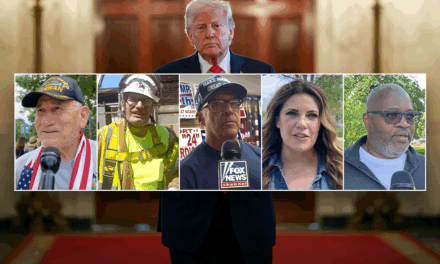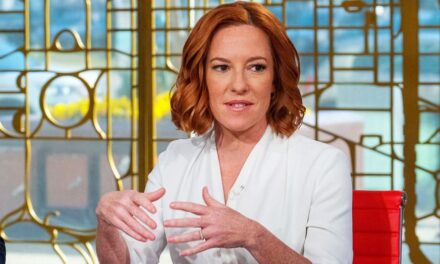In the ever-evolving world of social media and public health advocacy, few figures have gained the prominence and influence of YouTube star Doctor Mike Varshavski. Known for his charismatic and engaging approach to medical education, Doctor Mike has amassed millions of subscribers on his YouTube channel, where he shares insights on a wide range of health topics. Recently, he has turned his attention to the controversial movement led by Robert F. Kennedy Jr., known as MAHA (Medical Advocacy for Health Awareness), issuing a cautionary message to those who follow the initiative.
Robert F. Kennedy Jr., an environmental attorney and prominent anti-vaccine advocate, has been a fixture in health advocacy for several years. His new MAHA movement focuses on raising awareness about what he perceives as the dangers of pharmaceutical interventions and the corporate influence over public health guidelines. While the movement has garnered significant support among certain factions, it has been met with skepticism and criticism from many in the medical community, including Doctor Mike.
Doctor Mike’s objection to the MAHA movement stems from its potential to spread misinformation and foster distrust in established medical practices. In a recent video, he expressed his concern about the implications of promoting health narratives that stand in stark contrast to the overwhelming scientific evidence supporting vaccines and other preventative measures. “It’s crucial that we prioritize science and data in our discussions about health,” he stated, emphasizing the need for informed decision-making based on credible research rather than anecdotal experiences or unfounded claims.
As a licensed physician, Doctor Mike’s perspective holds weight in the ongoing dialogue surrounding vaccinations and public health policy. His prominence as a healthcare communicator allows him to reach a vast audience, making his stance all the more significant. While many may be drawn to the narratives presented by RFK Jr. and the MAHA movement, Doctor Mike urges followers to approach such claims critically and to consider the potential consequences of misinformation.
In his video, Doctor Mike elaborated on several key points of concern regarding the MAHA movement, particularly its rhetoric surrounding the safety of vaccinations. He referred to extensive research conducted over several decades that demonstrates the efficacy and safety of vaccines. “Misinformation can lead to vaccine hesitancy, which poses a serious risk not just to individual health but also to community health at large,” he remarked, highlighting the concept of herd immunity and the role vaccinations play in preventing outbreaks of diseases that were once under control.
Doctor Mike also addressed the larger implications of movements that challenge established medical consensus without a reputable scientific basis. He pointed out that while questioning medical practices can lead to constructive dialogue and improvements in health initiatives, it can also breed dangerous skepticism. “There’s a fine line between healthy skepticism and detrimental doubt that can lead individuals to avoid necessary treatments,” he noted.
Many supporters of RFK Jr.’s MAHA movement argue that their intent is to promote choice in medical care and advocate for natural remedies over pharmaceutical solutions. However, Doctor Mike stresses the importance of balancing personal choice with public health responsibilities. “It’s not just about individual choices; it’s about the collective responsibility we share in safeguarding our communities’ health,” he stated. He encouraged people to seek out reliable sources of information and to have open discussions with their healthcare providers when considering their health decisions.
Furthermore, when discussing the integrity of medical information, Doctor Mike pointed out that online platforms, including YouTube, can sometimes become breeding grounds for misinformation. Content creators have a responsibility to their audiences to present accurate and well-researched health information. “As influencers, we have the power to impact lives. We must use that platform wisely and ensure that the information we share is backed by scientific evidence,” he asserted.
Doctor Mike’s intervention is particularly important at a time when vaccine hesitancy is on the rise. The COVID-19 pandemic highlighted significant divides in public perception regarding vaccines, with misinformation rapidly spreading through various social media channels. As vaccination rates dip or plateau in certain areas, the potential for new outbreaks of preventable diseases increases, making public awareness and education even more critical.
In light of current trends, Doctor Mike’s cautionary stance extends beyond the MAHA movement. It reflects a broader concern regarding the proliferation of health misinformation in today’s digital landscape. Social media can amplify voices that lack scientific backing, and individuals often find themselves caught in the crossfire of competing health narratives. In such an environment, the role of trusted public figures like Doctor Mike may serve as a counterbalance, encouraging followers to make evidence-based health choices.
Engaging with his audience on a personal level, Doctor Mike invites questions, concerns, and discussions that facilitate learning and understanding. He believes that fostering open communication is essential in debunking myths and misconceptions that can arise in the health space. “Let’s discuss these issues openly and base our choices on the best available evidence,” he encouraged his viewers, aiming to empower them with the knowledge needed to navigate the complex world of health information.
As the debate around RFK Jr.’s MAHA movement continues, it’s clear that figures like Doctor Mike play an essential role in advocating for science-based health communication. The intersection of celebrity culture, health, and digital media is a multifaceted landscape, and the consequences of misinformation can have lasting impacts on public health. The dialogue initiated by Doctor Mike serves as a crucial reminder of the importance of critical thinking in health-related discussions.
In conclusion, while various movements may vie for public attention and support, Doctor Mike’s commitment to science and the welfare of the community underscores the significance of informed health choices. As he cautions against the allure of misleading narratives that threaten our understanding of medicine, the call for transparency and responsibility within health advocacy rings louder than ever. Those engaging with health issues, whether through social media or in everyday conversations, should remain vigilant and seek truths backed by research rather than rhetoric. Ultimately, the aim is to ensure that health conversations are rooted in facts, aiming for a healthier, well-informed society.
































